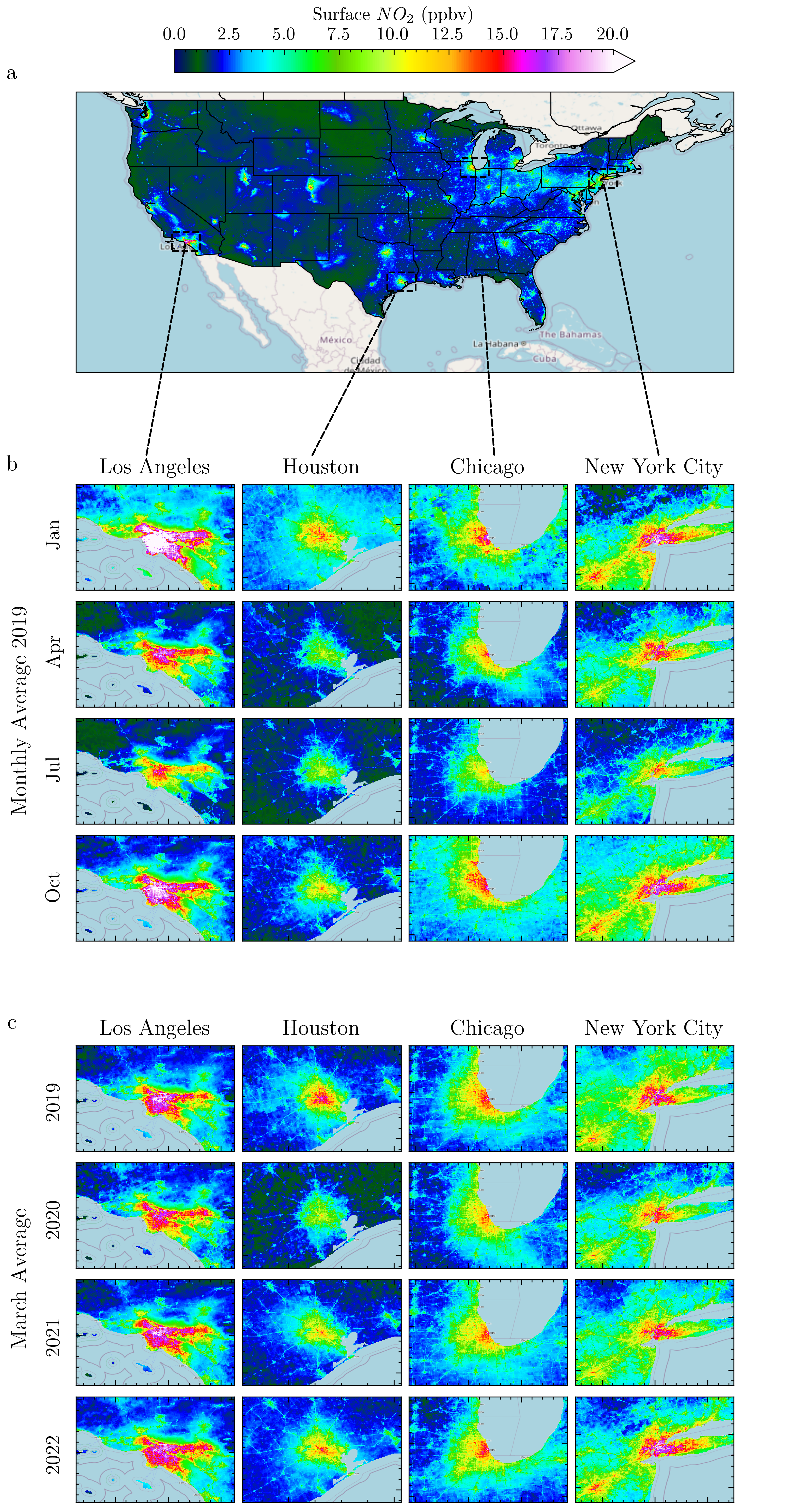Objective: Assess the health impacts associated with increased PM2.5 exposure in Brazil during
the 2019 Amazon fire season.
Summary: GEOS-Chem adjoint senstivities of PM2.5 exposure in Brazil to emissions of primary
carbonaceous aerosols were calculated and then combined with biomass burning emissions from FINN
and QFED. Overall, we estimated that nearly 5000 premature deaths in Brazil in 2019 were associated
with fires between July and September and that the 2019 fire season led to more air quality impacts
than 2018.
Objective: Develop a source apportionment framework of air quality health impacts at the
urban-scale by leveraging adjoint modeling and remote-sensing observations.
Summary: Using the city of Washington, D.C. as a test-bed we characterize species-specific,
regional and sectoral contributions of emissions to air quality and health. We identified the
sectors and regions that had the greaetst impact on air quality in Washington DC.
Objective: Identify the sectoral and country-scale contributions to air pollution-related
premature deaths in G20 countries and assess how changes in emissions could lead to public health
benefits.
Summary: The Group of Twenty (G20) countries are a collection of the world's largest and most
influential economies and are uniquely poised to take action to reduce the global health burden
associated with air pollution. We identified the leading contributors to air pollution in the G20
countries and estimated that hundreds of thousands of premature deaths could be
avoided from mitigation efforts targeting transportation and power generation emissions.
Objective: Identify the greatest contributors to air pollution the 14 US C40 cities and
characterize the accrued benefits of larger and larger regions adopting a mitigation policy.
Summary: For the 70.2 million people living in these cities, we estimate that 27740 PM2.5-
and O3-related premature deaths and 126600 NO2-related new asthma cases were attributable to air
pollution exposure in 2011. The findings suggest that the proportion of urban air pollution that is
regional is greater for premature deaths than new asthma cases and for the eastern US than the
western US.
Objective: Develop a new nested domain for GEOS-Chem and its adjoint for the purpose of source
apportionment and mitigation scenario impact assessment in Santiago, Chile.
Status: We estimate that 2,490 (1,360, 4,060) PM2.5- and O3-related premature deaths and
5,350 (1,320, 11,330) NO2-related new pediatric asthma cases were associated with pollution
exposure in Santiago in 2015 and that a majority of these health impacts were attributable to
anthropogenic emissions. We identify emissions from transportation, energy generation, and
residential combustion as the leading contributors to these health impacts. Additionally, we
estimate that Chile's commitment to attain carbon neutrality by 2050 could result in benefits in
Santiago of 3,230 (1,240, 7,160) avoided deaths and 2,590 (640, 5,500) avoided pediatric asthma
cases in 2050 compared to business-as-usual emissions.

Nawaz et al., In revision
Objective: Develop a fine resolution estimate of monthly surface-level NO2 in the US using
TROPOMI observations
to explore how finer resolution satellite data affects statistical modeling variable
importance.
Status: In revision.